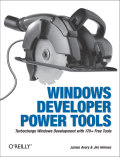Contents tagged with Books
-
Computer Books to Read on a Lonely Island
I recently had the pleasure to visit this place:
On an island of approx 300x200 meters, snorkeling, swimming, eating, sleeping and relaxing is pretty much all you do. And reading, lots of reading:
Two [computer] books that passed my personal “good to read far away from the keyboard” test are:
- “Clean Code: A Handbook of Agile Software Craftsmanship”
Robert C. Martin
I had this on my bookshelf for quite some time, but never did more than quickly scan the chapters. When you talk to people who have read this book, they usually say “you will not agree on everything the book says, but it is an important book to read” – now I’m one of them.
I won’t go into more detail here; the reviews on e.g. Amazon pretty much capture what this book is about, so I recommend you take a look there.
- “Pro Silverlight 3 in C#”
Matthew MacDonald
Unlike “Clean Code”, this may not a book that would come to one’s mind as something that could be read well away from the computer – after all, it’s dealing with a specific technology and not general concepts.
But this book does the walkthrough through the various code samples so well that you don’t need Visual Studio to follow what’s going on. I never had the feeling “Wait, where does this thing come from? If I only could hit F12” (which was what happened to me with one of the early books on WPF).
- “Clean Code: A Handbook of Agile Software Craftsmanship”
-
My WPF Bookshelf
For future reference a quick list of WPF-related books I own:
- Charles Petzold: Applications = Code + Markup
This was my first WPF book and I bought it pretty soon after it came out, so I didn't have a chance to read the bad reviews of other people. The main problem is the lack of images, leaving you just with the text and your imagination if you're not following each and every step at your computer. Contrary to other WPF books, XAML is introduced pretty late (in the second half). In his excellent PDC pre-conference session about WPF, Petzold himself admitted that this was a mistake and chose a different, XAML-first (instead of code-first) approach for the session.
According to a buddy from my .NET user group the book may be nice for reading about some deep-down details, but I cannot comment on that.
Bottom line: No recommendation from me.
- Adam Nathan: Windows Presentation Foundation Unleashed
This was my second WPF book and it is the exact opposite to Petzold's book: lots of images, lots of color. I really liked that at first, but it's actually pretty hard to read the book for longer periods of time with the pages being cluttered with colored boxes ("Warning", "Digging Deeper", "FAQ", "Tip") - a bit less color sometimes would have been better. And I would have liked more body text here and there, having the feeling that some things could have been explained in more detail.
Bottom line: By no means a bad book, but I'm not entirely convinced.
- Chris Sells & Ian Griffiths: Programming WPF (2nd Ed.)
My third WPF book. The layout is easy on the eyes, a good mixture of images and longer body text. Like the WPF Unleashed book it has side notes (warnings, tips, recommendations), but they are shown in a less obtrusive way. I really liked the writing: Enough text for explaining things, but never boring. I read large parts of the book away from the computer and enjoyed it.
Bottom line: My favorite "first WPF book".
- Sam Noble, Sam Bourton, Allan Jones: WPF Recipes in C# 2008
Not a book for learning WPF from scratch, but a collection of problems and their solutions. It may seem a bit old-fashioned to have this in a book in the age of Google search, but you'll notice the difference between most things you find on the Internet and the content of this book where the authors actually have spent quite some time on polishing.
Each entry in the book consists of a short description of the problem (Always starting with "You need to ...", very effective wording by the way), a short description of the solution ("Use an X and do Y") and is then followed by a longer part "How it works".
Bottom line: Having this book on your bookshelf may save you a lot of time.
- Charles Petzold: Applications = Code + Markup
-
GhostDoc in "Windows Developer Power Tools"
 Today I received my copy of “Windows Developer Power Tools” by James Avery and Jim Holmes, to which I contributed a chapter about my Visual Studio add-in GhostDoc, comparable in scope to what I wrote for “Visual Studio Hacks”. For the chapter in “Tools” (which grew to 7 pages compared to 5 in “Hacks”), I took the opportunity to be more clear about what GhostDoc can do, and what it cannot achieve, and what to look out for e.g. when re-using inherited documentation.
Today I received my copy of “Windows Developer Power Tools” by James Avery and Jim Holmes, to which I contributed a chapter about my Visual Studio add-in GhostDoc, comparable in scope to what I wrote for “Visual Studio Hacks”. For the chapter in “Tools” (which grew to 7 pages compared to 5 in “Hacks”), I took the opportunity to be more clear about what GhostDoc can do, and what it cannot achieve, and what to look out for e.g. when re-using inherited documentation.A small error was introduced in editing of my original text (which by the way turned out surprisingly tame considering the fact that English is not my native language): Unlike suggested by the text on page 314 “when you want to document a method or class”, GhostDoc does not generate documentation for classes. On a sidenote: While this is a feature that has been requested a couple of times, it hasn’t been implemented yet. And honestly, I’m not quite sure of the value of such a feature, let alone what exactly it is supposed to do (most of the examples I have received so far show a certain ELIZA effect concerning the belief in GhostDoc’s abilities, but I’m still open to suggestions).
To bring the topic back to the book: at more than 1300 pages, it contains a lot of stuff, covering more than 170 free and open source tools for developers. The concept of the book is to describe each tool on roughly 3 to 10 pages, helping you to decide whether or not to give it a shot, and if so, how and where to start. If “Windows Developer Power Tools” saves you from either missing a really good tool, or installing some crud software in the process of finding one, the book has reached its goal and saved you a lot of time (and maybe even trouble). As one reviewer puts it “You could spend your time tracking down these applications, but why?”. From what I can tell by a first quick glance at the table of contents and skimming the pages, definitely an interesting book.

